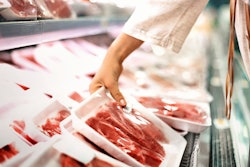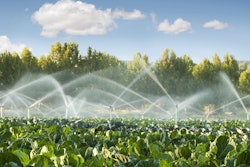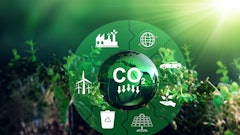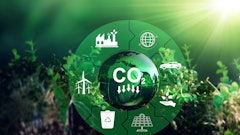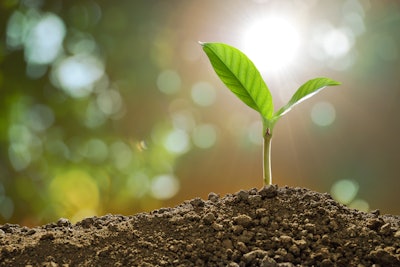
The term “organic” often conjures an idyllic image of rolling fields, free-roaming farm animals and visually perfect produce that can magically melt off pounds and transform lives with the push of a smoothie blender. This consumer perception — somewhat manufactured by marketing machines and cemented by lobbyists with deep pockets — has meant “big profits” for big food companies. And while consumers continue to pay premium prices for organic food products branded as cleaner, healthier and more nutritious, a 2021 study found that most don’t know what “organic” actually means.
Labels don’t tell the whole story. Today, 811 million people go to bed hungry each night. By 2030, there will 8.5 billion people on the planet to feed. Right now — and as we chart a path toward a better future — the agricultural focus must be on sustainability. What may still be shocking to some is that sustainability does not necessarily mean organic.
Conventional vs. organic agriculture: An unproductive debate
When it comes to agricultural practices, there simply is no “silver bullet.” Viewing conventional methods as categorically “bad” and organic as “good” is unproductive and limiting. Solving the sustainability challenge will require a much more nuanced and inclusive approach.
For many years, conventional agriculture was the easiest way to produce crops at scale to feed expanding populations. Scientific research and technology advancements have made it possible to enhance plant growth and output in relation to synthetic chemical potency. However, widespread pathogen resistance continues to drive the need for higher and higher chemical application dosages. Such chemical-based solutions have been linked to significant greenhouse gas emissions and mounting climate change concerns that can also present safety risks to humans, animals and ecosystems. Because of this, many are advocating for a move to non-chemical solutions.
But the answer isn’t quite as simple. It’s true that organic agriculture practices of “growing and processing food using no synthetic fertilizer or pesticides,” as defined by the Environmental Protection Agency, can help reduce greenhouse gas emissions in certain niche scenarios. But there are negative implications as well – implications that many continue to ignore. For instance, for more than a century, grape growers have used copper salts in various mixtures to combat plant diseases such as powdery mildew. As copper resistance has grown over time, applications have become extraordinarily high and increasingly frequent. Scientists have traced copper residues in the soils in these regions as a result of this controversial organic practice.
Experts have warned that a widespread, exclusive shift to organic could cause severe environmental, economic and societal implications. In fact, going “all in” on organic could mean as much as 40% lower crop yields and actually increase net greenhouse gas emissions by as much as 21% because of expanded land and agricultural demands.
Sri Lanka is an example of what going “all in” on organic farming implies. After a nationwide ban on the importation or use of synthetic fertilizers and pesticides and ordering 2 million farmers to shift to organic practices, its crop production, farmer livelihoods and the economy were devastated. Crops that were staple exports and primary pillars of its economy were decimated, food prices soared and more than half a million people sunk back below the poverty level. Late in 2021, the government announced that it was pulling back on its goal to become the first country to fully adopt organic farming – finally removing the ban after months of mass protests. Some will argue it was timing and the pandemic that threw fuel on the fire, but the shift to more sustainable agriculture practices simply cannot happen overnight.
Redefining “sustainable ag”
Real sustainability isn’t about eliminating one approach in favor of the other. Consider the impact of locally grown, in-season tomatoes that have been treated sparingly with a synthetic fungicide and then picked, washed and sold at a local market package-free versus an air-freighted organic option that has been processed, packaged and shipped halfway around the world before reaching your plate. Beyond the questions tied to waste and emissions, we must also look at our human needs. And quite simply, we cannot feed our global community without the use of some conventional chemical pesticides for the foreseeable future and changes in how/where we source our fresh food products.
Instead, the search for true sustainability means weighing all options carefully, including new, novel practices and technologies and embracing a blended, balanced approach that creates the smallest impact across three key dimensions -- environmental, economic and societal.
An example of this balance in action is precision agriculture and crop protection. Some of the most effective and common chemical-based crop protection solutions have been grossly overused for many years in regions all around the world. Imagine how much less chemicals farmers would need to use if they could utilize precision agriculture to target and spray specific weeds only instead of entire fields at a time. Not to mention how this dramatic reduction could help curb resistance levels over time.
Biocontrol solutions tied to natural proteins represent another novel approach gaining traction as a potential complement to existing crop protection solutions. When used as part of a balanced integrated pest management (IPM) program, biocontrols offer a highly effective way to fight plant pests and diseases and protect crops, while addressing the needs of growers and consumers alike by substantially reducing residue levels. When applied post-harvest, these biocontrols can also help dramatically extend the shelf life of key elements of our food value chain like fresh fruits, vegetables and nuts and substantially reduce food waste. And by using different biological modes of action than traditional chemical and microbial solutions, these protein-based biocontrols can be added into current crop protection rotations as a completely new way to manage pathogen resistance.
Sustainable agricultural practices cannot be summed up by a label on a piece of fruit in the grocery story. They must be measured by their environmental, economic and societal impact. Instead of extolling the virtues of organic only and eliminating all chemical inputs, let’s look at things more inclusively, with a non-emotional system approach. The answer to our climate and environmental concerns lies in a sustainable approach that considers and applies a strong mix of technologies, solutions and approaches to grow what we need with less impact.




